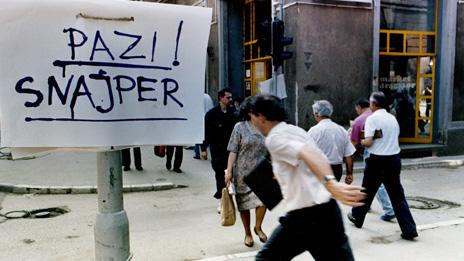Bosnia's DNA quest to identify war dead
- Published
The people trying to identify Bosnia's war missing
A mid-afternoon congregation of mourners waits outside the mortuary in Visoko, about half an hour's drive from Bosnia's capital, Sarajevo. A funeral parade is due to begin, and finally some families will be able to pay their last respects.
Inside the building, work continues on the remains of unidentified victims from Bosnia's conflict of the 1990s.
Eight thousand people reported missing have yet to be found - while the remains of 3,000 people exhumed from mass graves still have not been identified.
Somewhere between the two figures is the potential to bring solace to thousands of families.
Both the tiles and the workers' scrubs cast a green tint in the room, where a small group of specialists methodically set about their task. They sit at tables, sifting through evidence that could help identify the missing.
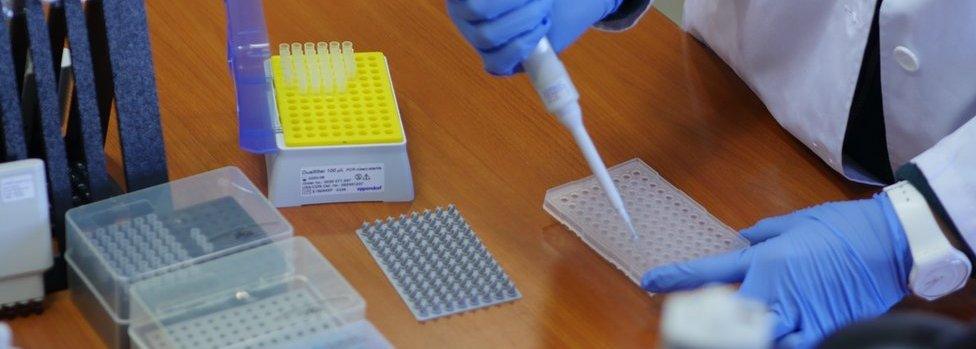
Investigators check existing DNA samples and collect new ones with the aim of identifying more victims
Bones are set out in neat rows, alongside personal items - tattered Yugoslav-era identity documents, wallets and coins. Some workers squat on the floor, cleaning dirt from fragments of clothing.
"We do a full anthropological re-examination of the case," says Dijana Sarzinski, who is managing the "No Name" project for the International Commission on Missing Persons.
As its title suggests, this is an effort to identify remains that have been kept, unclaimed, in mortuaries across Bosnia.
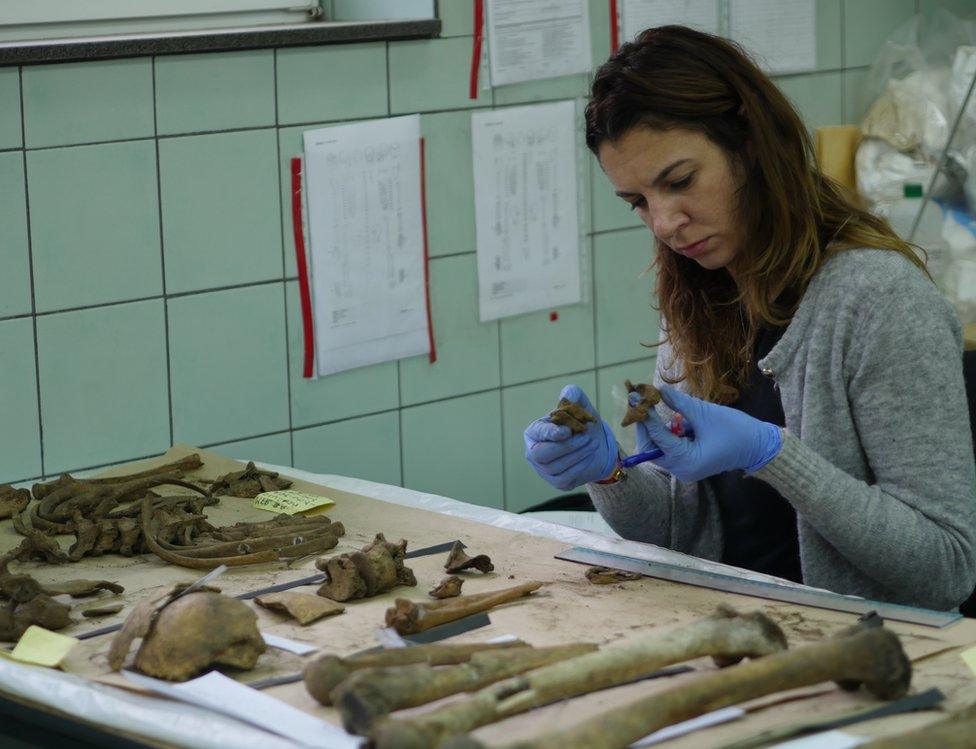
The remains of thousands of Bosnian war victims are yet to be identified
"We reassess previously taken DNA samples, determine whether new DNA samples need to be taken and review all the accompanying documentation. We're trying to find out any bit of information that could lead us to identity."
With the project more than two-thirds complete, the ICMP has so far identified 80 missing people.
"I'm really proud. The ratio may seem small, but those are 80 people that we helped bring home," says Ms Sarzinski.
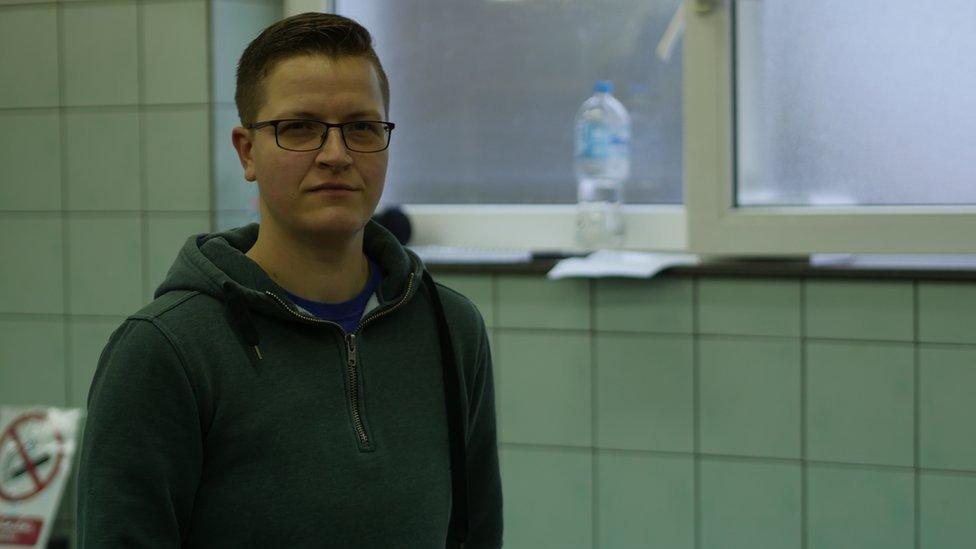
Ms Sarzinski says the number of successes has been small but important
Mother's search for her son
Smilja Mitrovic hopes the efforts will help her to identify and bury her son, Dragan.
He was a 19-year-old conscript in the Bosnian Serb army who was two days away from completing his military service when he disappeared in September 1995.
On a visit to the ICMP's Sarajevo headquarters, she explains that hers is more than simply a personal quest.
"The missing persons issue is an open and painful issue that Bosnia is struggling with," she says.
The next step will need to be approached with some considerable delicacy. It involves collecting blood samples from relatives of people who were identified visually, before the ICMP developed its world-leading DNA-testing technology.
If there is a positive match with the unidentified remains, it may mean the wrong body was buried all those years ago. But this would offer an opportunity to set matters right.
Families would be able to lay the correct remains to rest - and Bosnia might move a little closer towards reconciliation.
- Published11 July 2015
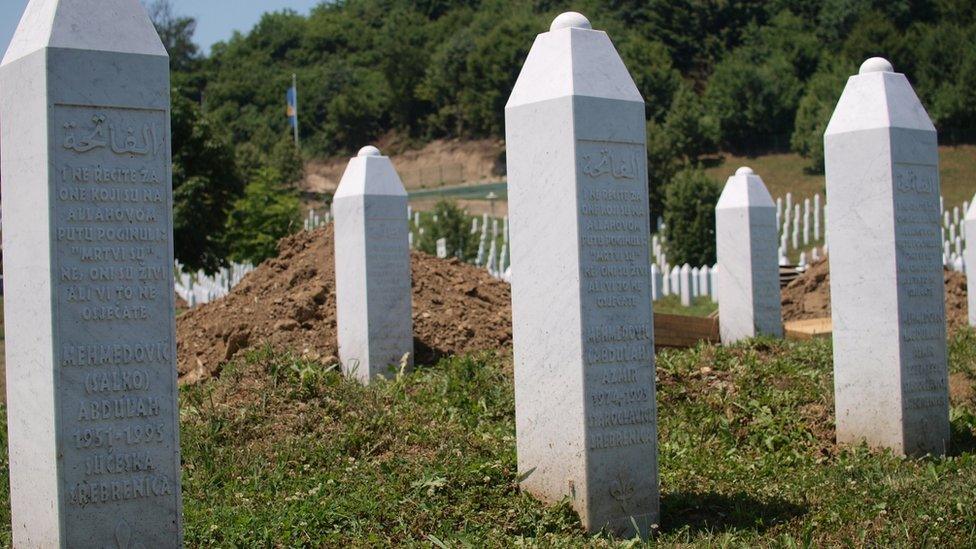
- Published9 July 2015
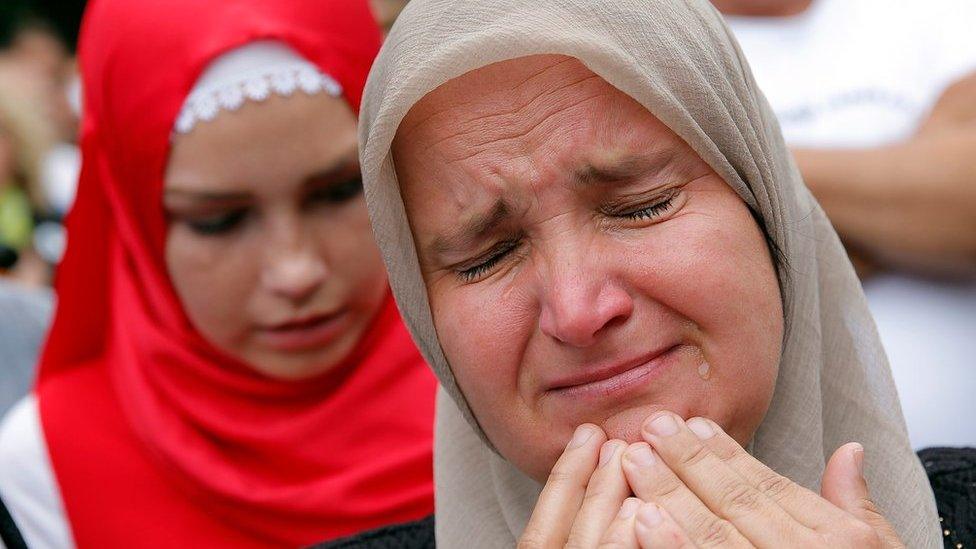
- Published18 March 2016
